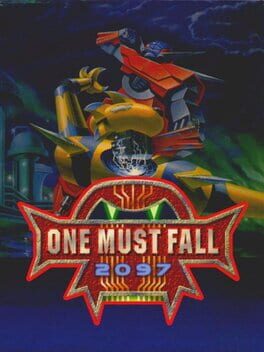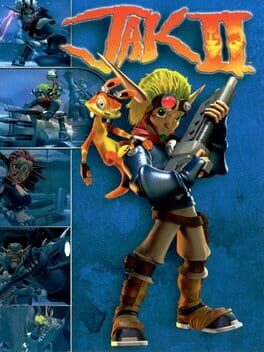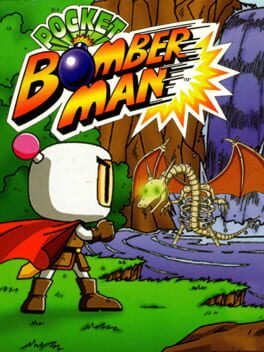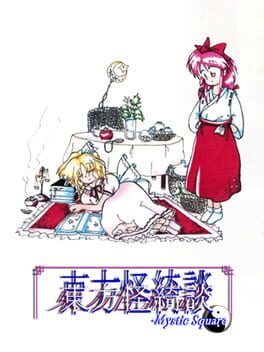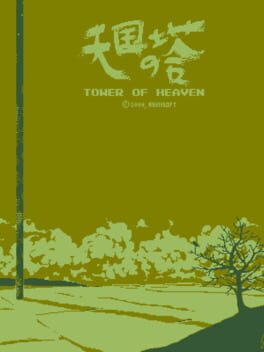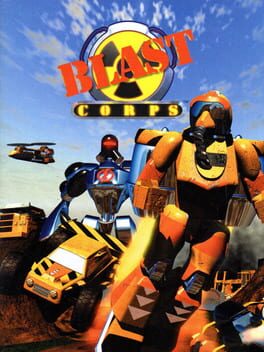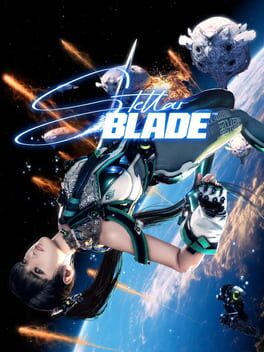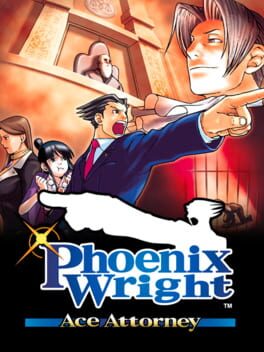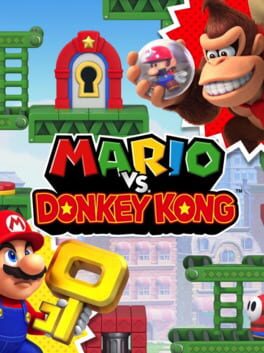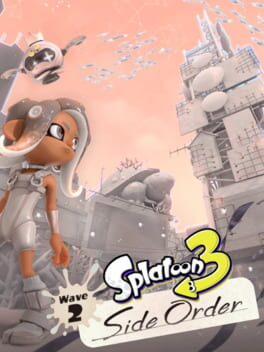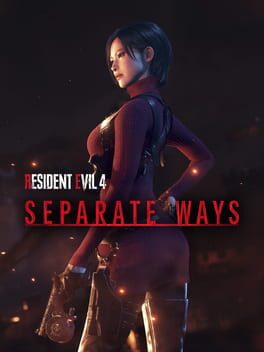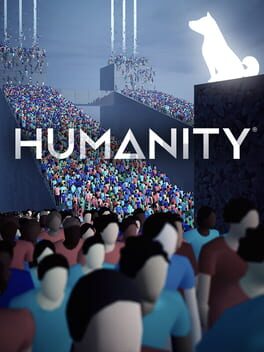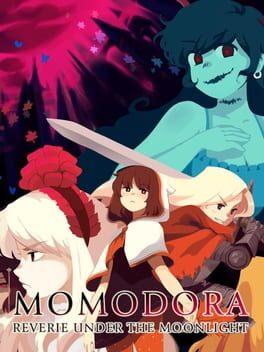surprisejunkie
1994
2003
i dipped back into jak II last night, mainly out of spite re: druckmann’s recent comments on ai. tbh i’m mostly ambivalent towards games’ adoption of genAI. what can i do, i’m just one man, etc., and that train is already in motion anyways. i’ll save my energy. what irked me more was druckmann shitting on his own studio’s legacy.
it was always clear that naughty dog wanted the world to forget its pre-uncharted history. they claimed it was important to move on, that ND must mature if they were to make truly impactful experiences. this line continued in many of druckmann’s post-uncharted 4 (the most boring one) comments, now indicating fresh disdain for the first three games, striking them from the record. it seemed tlou was the pinnacle of achievement. i guess it makes sense. it takes a certain type of person to (co-) create one game and immediately crown themself the king of videogaming.
i don’t have much to say about tlou here, except to note that it laid bare ND’s conception of ‘maturity’ – ultimately that of an angsty, childish teen firing on all cylinders, begging to be taken seriously. to no one’s surprise, violence and unsubtle cynicism were in, while dynamism, colour, and fun were out. time gave us uncharted 4 and tlou 2, eliminating any lingering doubt in our minds. it’s still crazy to think this was ND sending their best.
jak II though? it’s fun as hell. shades of gta III, of blade runner, of rayman 2, of tony hawk’s pro skater, filtered through the saturday morning cartoon machine. if there’s one thing naughty dog have always done well, it is their skirting of genre boundaries with an approach grounded not in whiplash, but holism. it’s a shame they now only mix things up as far as, for example, letting you ride a horse for all of five minutes in tlou. even better, jak II has some actual teeth, with ND still riding the coattails of challenge-based play. it is willing to demand that we keep our focus. beyond that, as a cursory mention lest i keep waffling: environments, visual language, characters, dialogue, etc., are all simply fun. uncomplicated, but fun. i can’t truly say i’m in love with the game, but it’s hard not to respect what it’s putting down.
let’s go back to druckmann’s AI comments:
“at naughty dog, we transitioned from hand-animating jak and daxter to using motion capture in uncharted, significantly enhancing our storytelling. ai will allow us to create nuanced dialogues and characters, expanding creative possibilities”
where to begin… maybe with this being a straight up lie. ND have always championed fine-tuned manual animination. does druckmann think everyone forgot the pains he took to express how tlou 2’s visual cohesion was only made possible through the attention to detail of their expert animators? because mo-cap alone couldn’t cut it?? i know he’s now blowing smoke up some corporate asses but damn, it’s crazy to state you’re oh-so over it while throwing some of the studio’s most formative work under the bus.
taken for what it was (is), jak II’s animation quality is superb, both in cutscenes and gameplay. again, saturday morning cartoon vibes. wind waker levels of expression. they are as vibrant and dynamic as the rest of the game, emblematic of an experience that never kowtows to a self-conscious sense of ‘maturity’ or ‘dignity’. for druckmann to bristle at this, yet again placing ND above such ‘childish’ things, feels like a rosetta stone for the studio’s future. time to pack it up. we’ll never see anything like this—anything so fun—from this bunch again.
anyway. hope everyone is excited for tlou 3. surely genAI, hand-in-hand with the power of the PlayStation®5, will be harnessed to enable the most pro-genocide game yet seen.
it was always clear that naughty dog wanted the world to forget its pre-uncharted history. they claimed it was important to move on, that ND must mature if they were to make truly impactful experiences. this line continued in many of druckmann’s post-uncharted 4 (the most boring one) comments, now indicating fresh disdain for the first three games, striking them from the record. it seemed tlou was the pinnacle of achievement. i guess it makes sense. it takes a certain type of person to (co-) create one game and immediately crown themself the king of videogaming.
i don’t have much to say about tlou here, except to note that it laid bare ND’s conception of ‘maturity’ – ultimately that of an angsty, childish teen firing on all cylinders, begging to be taken seriously. to no one’s surprise, violence and unsubtle cynicism were in, while dynamism, colour, and fun were out. time gave us uncharted 4 and tlou 2, eliminating any lingering doubt in our minds. it’s still crazy to think this was ND sending their best.
jak II though? it’s fun as hell. shades of gta III, of blade runner, of rayman 2, of tony hawk’s pro skater, filtered through the saturday morning cartoon machine. if there’s one thing naughty dog have always done well, it is their skirting of genre boundaries with an approach grounded not in whiplash, but holism. it’s a shame they now only mix things up as far as, for example, letting you ride a horse for all of five minutes in tlou. even better, jak II has some actual teeth, with ND still riding the coattails of challenge-based play. it is willing to demand that we keep our focus. beyond that, as a cursory mention lest i keep waffling: environments, visual language, characters, dialogue, etc., are all simply fun. uncomplicated, but fun. i can’t truly say i’m in love with the game, but it’s hard not to respect what it’s putting down.
let’s go back to druckmann’s AI comments:
“at naughty dog, we transitioned from hand-animating jak and daxter to using motion capture in uncharted, significantly enhancing our storytelling. ai will allow us to create nuanced dialogues and characters, expanding creative possibilities”
where to begin… maybe with this being a straight up lie. ND have always championed fine-tuned manual animination. does druckmann think everyone forgot the pains he took to express how tlou 2’s visual cohesion was only made possible through the attention to detail of their expert animators? because mo-cap alone couldn’t cut it?? i know he’s now blowing smoke up some corporate asses but damn, it’s crazy to state you’re oh-so over it while throwing some of the studio’s most formative work under the bus.
taken for what it was (is), jak II’s animation quality is superb, both in cutscenes and gameplay. again, saturday morning cartoon vibes. wind waker levels of expression. they are as vibrant and dynamic as the rest of the game, emblematic of an experience that never kowtows to a self-conscious sense of ‘maturity’ or ‘dignity’. for druckmann to bristle at this, yet again placing ND above such ‘childish’ things, feels like a rosetta stone for the studio’s future. time to pack it up. we’ll never see anything like this—anything so fun—from this bunch again.
anyway. hope everyone is excited for tlou 3. surely genAI, hand-in-hand with the power of the PlayStation®5, will be harnessed to enable the most pro-genocide game yet seen.
1997
childhood game type beat. i never had a chance to finish this as a kid, only had it for a couple of days. for some reason my little sister hid my cartridge in the oven(?) of all places. my mother turned it on hours later and soon enough my game turned into goo. pretty sure my sister managed to convince her it was my fault lol. i remember so little of my childhood, but the scent of acrid plastic and the sight of some dali clock ass looking game boy cartridge will never leave me.
anyway. glad i got around to it. it’s a videogame for sure. not much else to say really… peace…
anyway. glad i got around to it. it’s a videogame for sure. not much else to say really… peace…
first 1cc (normal): august 2023
first 1cc (hard): august 2023
first extra stage clear: may 2024
that gap probably says a lot. mystic square’s extra stage is like a friend you can only tolerate in small doses. you love them, truly, but their energy, their intensity, whatever it is, quickly puts you at your limit. so rather than beat my head against the wall, i chipped away slowly, bit by bit.
mystic square is often cited as the first ‘real’ touhou, or at least the crystallisation of the series’ core. stages more closely resemble the windows games in their pacing, flow, and approach to pattern recognition. it does include some since-deprecated elements: faster danmaku, some overtly unfair patterns, and a slight incongruity between objects and background visuals, but it is otherwise the pinnacle of the pc-98 era, a strong yet breezy (by touhou standards) challenge and, for my money, the best in the series. i am a simple person with simple tastes; i do not require many verbs beyond ‘shoot’ and ‘dodge’. core gimmicks introduced in later entries don’t do much for me, and if we’re taking that route i want ikaruga levels of elegance. beyond its gameplay, mystic square’s audiovisual qualities stand above its predecessors and shine against those of the windows era. even without prior pc-98 exposure, the system evokes a strong sense of false nostalgia, essentially a mandela effect. it feels hard to top. all said, though, there remains an uneasy tension: its randomness.
before continuing, let’s talk a bit (a lot) about our attitudes to randomness. pull up a chair, weary traveller. it’s warm by the fire.
the trajectory of single player videogames, and particularly action games, has shown an overt effort to cement determinism not as best practice, but the only practice. rng is rarely a significant factor in the core loop of modern games, instead relegated to adding flavour (crit rates) or bloat (loot tables). this is ostensibly for the sake of fairness. videogames are amongst our most conservative mediums, after all, and there is money to be made. why force players to be good at a game when they could instead FEEL like they’re good at a game? for their part, the gamers have also spoken: no longer do they wish to endure the fluctuations in difficulty and pattern recognition they associate with a virtual dice roll. the people want rote learning. to eliminate randomness is to eliminate cheap deaths and cheating videogames.
this is not new, of course. we have bemoaned games’ randomness throughout their existence. it is natural that their design will react against that of their forebears. more recently, though, we can observe an accelerationist trend, which i would pin on the preponderance of two phenomena: speedrunning and esports. strangely, it is the former which has had an outsized influence (at least on developers), despite greater popularity of the latter. over the past fifteen or so years we have been infected with these cultures’ preferences and attitudes to gameplay. speedrunning has become the primary lens through which we consider high-level play; its impact on design has been huge, grounding notions of reliability, measurement, and replication more firmly within the vernacular. it’s no coincidence that these all ideally rely on a deterministic game state. but this influence has been as detrimental as it has been enriching. no doubt it will continue for a good while, until the pendulum inevitably swings back.
a basis in planning, memorisation, and execution can serve many games well, but in our efforts to gradually eliminate randomness as a core part of gameplay, we lose more than we think. so what is lost, specifically? in most cases it is the direct opposite of the above: reaction, improvisation, and adaptability. these are crucial for any game liker who wishes to experience a fuller breadth of play, yet this skill set has been eroded as we reduce games to a set of replicable inputs and outputs. mario maker, by necessity a largely deterministic system, provides a great example: players happy to grind out a kaizo hellscape item abuse gauntlet for twenty hours will just as easily balk at the sight of a hammer bro in a standard level. the hammers fall, the bro bounces. a pattern is discernible but contains fluctuations. the player cannot jump over, so they wait for the bro to jump; it seems to occur once every three to five seconds. doubt has already set in. through sheer nerves they hesitate, making their move a half-second too late. the once-hardened gamer assumes the fetal position. we hear a faint cry on the wind: ‘that’s buuuulshit’.
yes, we have countless examples of randomness gone too far, of dubious implementations, and of course this has influenced its negative perception. modern games don’t help the cause: when they do impact moment-to-moment gameplay, their rng elements are often half-baked annoyances that only get a pass thanks to their place on the periphery, ever present but held back from significant interference. we briefly grumble but accept them nonetheless. but to discard randomness entirely strips away, to channel todd ‘mister cheater’ rogers, the human element. larger degrees of randomness, more strongly integrated with a core gameplay loop, can offer a sensation that determinism can never evoke, so long as they are handled with care and consideration. there is a lot of good to be said for the successful execution of our best laid plans, yet we must also keep our arms open to other experiences. there is beauty to be found in an unrecognisable, unpredictable screen. those willing meet it with grace and humility will be rewarded.
so, having established my feelings on randomness, let’s move on…
there’s no way around it: mystic square’s extra stage is the worst of all worlds. deterministic patterns, ramped up by a factor of eighty million or so versus the main game, intermingle with rng-based sprays of fire and brimstone. this is not an either/or proposition, they occur in tandem. just to rub it in, this stage is long as hell. surviving for so long, only to die a stray bullet is worse than real, physical pain. high expectations are fine, but the focus on both simultaneous reaction and execution, at least given this stage’s intensity, pushes us to our limits. beyond testing our skill in parsing both deterministic and random factors, it will lean on our patience, tolerance, and resolve. this is generally not the case with the extra stages from EoSD onwards. while those are much, much harder, they afford us greater opportunities to accumulate knowledge, to slowly improve. this is not to say this stage is unreasonable (though it almost certainly is), just that it provides a valuable case study on the limits of fairness, in going too far with randomness, even for those whose hearts are open to improvisation. as it turns out, a pill flung at terminal velocity in a random direction is not the easiest one to swallow.
after so much waffling, i realise i’ve dug myself into a bit of a hole. not a big one… more like a small ditch. i never planned to write about this game, i just wanted a lens through which to talk about rng. and i don’t even hate the stage! it builds upon an already excellent main game and cranks both the ‘pleasure’ and ‘pain’ dials up a few million notches. it contains the best track in the game, and one of ZUN’s best overall. the backgrounds rock, and contain more vivid detail than those prior. bullet patterns are legitimately interesting once you see through their deception. it tested my limits over and over, yet somehow did not break them. beating this was every bit as much a relief as it was an achievement. if you have interest in dodging bullets, mystic square’s extra stage isn’t necessarily a bad choice, so long as you’re willing to meet it on its own terms. otherwise, idk… you could always try your luck at the casino instead.
first 1cc (hard): august 2023
first extra stage clear: may 2024
that gap probably says a lot. mystic square’s extra stage is like a friend you can only tolerate in small doses. you love them, truly, but their energy, their intensity, whatever it is, quickly puts you at your limit. so rather than beat my head against the wall, i chipped away slowly, bit by bit.
mystic square is often cited as the first ‘real’ touhou, or at least the crystallisation of the series’ core. stages more closely resemble the windows games in their pacing, flow, and approach to pattern recognition. it does include some since-deprecated elements: faster danmaku, some overtly unfair patterns, and a slight incongruity between objects and background visuals, but it is otherwise the pinnacle of the pc-98 era, a strong yet breezy (by touhou standards) challenge and, for my money, the best in the series. i am a simple person with simple tastes; i do not require many verbs beyond ‘shoot’ and ‘dodge’. core gimmicks introduced in later entries don’t do much for me, and if we’re taking that route i want ikaruga levels of elegance. beyond its gameplay, mystic square’s audiovisual qualities stand above its predecessors and shine against those of the windows era. even without prior pc-98 exposure, the system evokes a strong sense of false nostalgia, essentially a mandela effect. it feels hard to top. all said, though, there remains an uneasy tension: its randomness.
before continuing, let’s talk a bit (a lot) about our attitudes to randomness. pull up a chair, weary traveller. it’s warm by the fire.
the trajectory of single player videogames, and particularly action games, has shown an overt effort to cement determinism not as best practice, but the only practice. rng is rarely a significant factor in the core loop of modern games, instead relegated to adding flavour (crit rates) or bloat (loot tables). this is ostensibly for the sake of fairness. videogames are amongst our most conservative mediums, after all, and there is money to be made. why force players to be good at a game when they could instead FEEL like they’re good at a game? for their part, the gamers have also spoken: no longer do they wish to endure the fluctuations in difficulty and pattern recognition they associate with a virtual dice roll. the people want rote learning. to eliminate randomness is to eliminate cheap deaths and cheating videogames.
this is not new, of course. we have bemoaned games’ randomness throughout their existence. it is natural that their design will react against that of their forebears. more recently, though, we can observe an accelerationist trend, which i would pin on the preponderance of two phenomena: speedrunning and esports. strangely, it is the former which has had an outsized influence (at least on developers), despite greater popularity of the latter. over the past fifteen or so years we have been infected with these cultures’ preferences and attitudes to gameplay. speedrunning has become the primary lens through which we consider high-level play; its impact on design has been huge, grounding notions of reliability, measurement, and replication more firmly within the vernacular. it’s no coincidence that these all ideally rely on a deterministic game state. but this influence has been as detrimental as it has been enriching. no doubt it will continue for a good while, until the pendulum inevitably swings back.
a basis in planning, memorisation, and execution can serve many games well, but in our efforts to gradually eliminate randomness as a core part of gameplay, we lose more than we think. so what is lost, specifically? in most cases it is the direct opposite of the above: reaction, improvisation, and adaptability. these are crucial for any game liker who wishes to experience a fuller breadth of play, yet this skill set has been eroded as we reduce games to a set of replicable inputs and outputs. mario maker, by necessity a largely deterministic system, provides a great example: players happy to grind out a kaizo hellscape item abuse gauntlet for twenty hours will just as easily balk at the sight of a hammer bro in a standard level. the hammers fall, the bro bounces. a pattern is discernible but contains fluctuations. the player cannot jump over, so they wait for the bro to jump; it seems to occur once every three to five seconds. doubt has already set in. through sheer nerves they hesitate, making their move a half-second too late. the once-hardened gamer assumes the fetal position. we hear a faint cry on the wind: ‘that’s buuuulshit’.
yes, we have countless examples of randomness gone too far, of dubious implementations, and of course this has influenced its negative perception. modern games don’t help the cause: when they do impact moment-to-moment gameplay, their rng elements are often half-baked annoyances that only get a pass thanks to their place on the periphery, ever present but held back from significant interference. we briefly grumble but accept them nonetheless. but to discard randomness entirely strips away, to channel todd ‘mister cheater’ rogers, the human element. larger degrees of randomness, more strongly integrated with a core gameplay loop, can offer a sensation that determinism can never evoke, so long as they are handled with care and consideration. there is a lot of good to be said for the successful execution of our best laid plans, yet we must also keep our arms open to other experiences. there is beauty to be found in an unrecognisable, unpredictable screen. those willing meet it with grace and humility will be rewarded.
so, having established my feelings on randomness, let’s move on…
there’s no way around it: mystic square’s extra stage is the worst of all worlds. deterministic patterns, ramped up by a factor of eighty million or so versus the main game, intermingle with rng-based sprays of fire and brimstone. this is not an either/or proposition, they occur in tandem. just to rub it in, this stage is long as hell. surviving for so long, only to die a stray bullet is worse than real, physical pain. high expectations are fine, but the focus on both simultaneous reaction and execution, at least given this stage’s intensity, pushes us to our limits. beyond testing our skill in parsing both deterministic and random factors, it will lean on our patience, tolerance, and resolve. this is generally not the case with the extra stages from EoSD onwards. while those are much, much harder, they afford us greater opportunities to accumulate knowledge, to slowly improve. this is not to say this stage is unreasonable (though it almost certainly is), just that it provides a valuable case study on the limits of fairness, in going too far with randomness, even for those whose hearts are open to improvisation. as it turns out, a pill flung at terminal velocity in a random direction is not the easiest one to swallow.
after so much waffling, i realise i’ve dug myself into a bit of a hole. not a big one… more like a small ditch. i never planned to write about this game, i just wanted a lens through which to talk about rng. and i don’t even hate the stage! it builds upon an already excellent main game and cranks both the ‘pleasure’ and ‘pain’ dials up a few million notches. it contains the best track in the game, and one of ZUN’s best overall. the backgrounds rock, and contain more vivid detail than those prior. bullet patterns are legitimately interesting once you see through their deception. it tested my limits over and over, yet somehow did not break them. beating this was every bit as much a relief as it was an achievement. if you have interest in dodging bullets, mystic square’s extra stage isn’t necessarily a bad choice, so long as you’re willing to meet it on its own terms. otherwise, idk… you could always try your luck at the casino instead.
2009
a idiot cynic tries to write with an open heart. in our current landscape it is only prudent to suspect that every word uttered is a form of engagement bait, and i hope the following is not coloured as such. i write only for myself, not you. sometimes we just need a spot to unload, particularly if we are the type of person built without a release valve. i guess an anonymous, parasocial, gamified tracker website is as good a place as any.
as i type, i am preoccupied with thoughts of a decade-long companion awaiting the outcome of a coin flip. to think they could be gone at any moment, stuck in a hospital i can’t reach quickly enough to say goodbye, is enough to induce a fresh heart attack every other minute. so i wanted to feel something, anything, beyond a drip feed of negativity.
our tendency to use media as a salve for despair is frankly stupid, a sign that we can no longer relate to our real, lived environment in a meaningful way (like come on just go for a fucking walk and look at a bird or whatever). nor does it provide much reward or tangible relief. let’s say we want to min-max our distraction therapy: open world game #642 could easily occupy my idiot brain for 100+ hours with its garbage (which, at a time like this, i cannot pretend to be above). no offense to open world game #642, of course; this truth would as easily hold for something good, engaging. all for what, though? is it just to forestall the levee breaking? so rarely, if ever, can consumption act as tourniquet. for now, though, let’s try.
i booted tower of heaven for the millionth time in as many years. mainly to hear the music. but why not see it through. a game whose runtime you can count in minutes is good for the soul—at this time, at any time. i can only wonder (rhetorically) why games struggle to be this efficient, succinct. in no way does this hamper it: this is a flawless game in the only sense that means something. an instance where a creator simply made the thing they wanted to make, expressing what existed in their own mind.
i do not wish to discuss the game too much. i could not care less about some gamereviewese bullshit right now. i would just implore others to try - it’s pretty fun! it is a short, ostensibly difficult platformer with a game boy sheen and fantastic compositions. as we know, flash games were required by law to have loose, questionable notions of momentum and inertia, and this one does not disappoint. all told, you should be done in thirty minutes or less. maybe longer if you want to find a secret ending. it is the exact kind of game i wish i was young enough to experience as intended: playing in your high school pc lab while ignoring your work.
the tower of heaven itself, allegedly insurmountable, at least mirrored my predicament to the extent which i have rationalised my circumstances. it has been a while, and i had somewhat forgotten about the laws and their broader lessons. i should have my ass beaten for using a phrase like “mechanics as metaphor”, but fuck it. where so many games contort themselves to chase this paradigm, usually failing, and even where games handle this gracefully (let’s say bloodborne), tower of heaven manages to capitalise on this in a handful of minutes, elegant, efficient, and convincing as ever.
i reached the point where ‘luna ascension’ plays and shed a couple of tears. to be fair, i would do the same in any state. even as sucker for silly midi orchestrations, i cannot think of many which carry such richness and emotional weight. this stands for much of the soundtrack. the use of motifs, even in a game with so few tracks, each part recalling and referencing another, could put toby fox to shame. i realise i’ve found a small sense of lasting catharsis.
upon reaching the end and [redacted], i ponder the laws once more. i’ve seen this sequence countless times, i won’t pretend they offer any novel or deep insight (at their most trite and simplified they can amount to, for example, ‘don’t look back, live in the present’). that’s fine: sometimes we just need a reminder of the basics. the fact these are here at all, ingrained in the entire game flow, and deepened further through some surprisingly consistent allegory and visual symbolism, all within a tiny fifteen year old flash game, astounds me. right now, this is just what i needed.
god is in his heaven. i will keep climbing.
as i type, i am preoccupied with thoughts of a decade-long companion awaiting the outcome of a coin flip. to think they could be gone at any moment, stuck in a hospital i can’t reach quickly enough to say goodbye, is enough to induce a fresh heart attack every other minute. so i wanted to feel something, anything, beyond a drip feed of negativity.
our tendency to use media as a salve for despair is frankly stupid, a sign that we can no longer relate to our real, lived environment in a meaningful way (like come on just go for a fucking walk and look at a bird or whatever). nor does it provide much reward or tangible relief. let’s say we want to min-max our distraction therapy: open world game #642 could easily occupy my idiot brain for 100+ hours with its garbage (which, at a time like this, i cannot pretend to be above). no offense to open world game #642, of course; this truth would as easily hold for something good, engaging. all for what, though? is it just to forestall the levee breaking? so rarely, if ever, can consumption act as tourniquet. for now, though, let’s try.
i booted tower of heaven for the millionth time in as many years. mainly to hear the music. but why not see it through. a game whose runtime you can count in minutes is good for the soul—at this time, at any time. i can only wonder (rhetorically) why games struggle to be this efficient, succinct. in no way does this hamper it: this is a flawless game in the only sense that means something. an instance where a creator simply made the thing they wanted to make, expressing what existed in their own mind.
i do not wish to discuss the game too much. i could not care less about some gamereviewese bullshit right now. i would just implore others to try - it’s pretty fun! it is a short, ostensibly difficult platformer with a game boy sheen and fantastic compositions. as we know, flash games were required by law to have loose, questionable notions of momentum and inertia, and this one does not disappoint. all told, you should be done in thirty minutes or less. maybe longer if you want to find a secret ending. it is the exact kind of game i wish i was young enough to experience as intended: playing in your high school pc lab while ignoring your work.
the tower of heaven itself, allegedly insurmountable, at least mirrored my predicament to the extent which i have rationalised my circumstances. it has been a while, and i had somewhat forgotten about the laws and their broader lessons. i should have my ass beaten for using a phrase like “mechanics as metaphor”, but fuck it. where so many games contort themselves to chase this paradigm, usually failing, and even where games handle this gracefully (let’s say bloodborne), tower of heaven manages to capitalise on this in a handful of minutes, elegant, efficient, and convincing as ever.
i reached the point where ‘luna ascension’ plays and shed a couple of tears. to be fair, i would do the same in any state. even as sucker for silly midi orchestrations, i cannot think of many which carry such richness and emotional weight. this stands for much of the soundtrack. the use of motifs, even in a game with so few tracks, each part recalling and referencing another, could put toby fox to shame. i realise i’ve found a small sense of lasting catharsis.
upon reaching the end and [redacted], i ponder the laws once more. i’ve seen this sequence countless times, i won’t pretend they offer any novel or deep insight (at their most trite and simplified they can amount to, for example, ‘don’t look back, live in the present’). that’s fine: sometimes we just need a reminder of the basics. the fact these are here at all, ingrained in the entire game flow, and deepened further through some surprisingly consistent allegory and visual symbolism, all within a tiny fifteen year old flash game, astounds me. right now, this is just what i needed.
god is in his heaven. i will keep climbing.
1997
2024
very impressive that a game can try to be ninja gaiden, nier, devil may cry and sekiro all at once, yet still somehow fail to capture the essence of what it aggrandises.
here’s the thing: this is not a real action game, it is a hollow facsimile of one. stellar blade tokenises action game design traits and shoehorns them into a dull modern template until it coalesces into god of war 2018: titty edition. mechanics lack any real depth while combat design is shallow and simplified. why is it combo-based if these are so heavily disincentivised? why are enemies so static, not playing to the strengths of the system? i’m glad they took the ninja gaiden route (e.g. letting you cancel an attack with a block) over sticking to animation priority, but my respect for the combat system mostly ends there. level and encounter design also lack anything beyond perfunctory consideration. enemy configurations often feel like a copy/paste job and never encourage a change in playstyle (e.g. switching between singular enemies/groups) or utilise risk-reward strategies. btw, there are only so many times you can pull the ‘enemy laying in wait behind the door/wall’ bit. if you must, then at least show me some intent, some playfulness. this shit just feels like getting 40 minutes into dead space and realising you’ll be repeating the same boring jump scare for the next twelve hours. bosses are, unsurprisingly, the best part, but sorely lack the dynamism required for what (i think) they were going for. all of these things are literally, categorically, the most important aspects to nail for a successful action game! it speaks volumes that they all feel half baked.
we can only assume that, at some point, an active decision was made to focus on adding AAA bloat instead of further developing and refining these most crucial design aspects. had shift up not been so enamoured with sonymaxxing every aspect of their game, we could have seen something legitimately interesting. instead we have a bird’s nest of disparate influences, filtered through the money-making machine until a big grey bowl of no-identity slop comes out the other end. who would’ve thought!
here’s the thing: this is not a real action game, it is a hollow facsimile of one. stellar blade tokenises action game design traits and shoehorns them into a dull modern template until it coalesces into god of war 2018: titty edition. mechanics lack any real depth while combat design is shallow and simplified. why is it combo-based if these are so heavily disincentivised? why are enemies so static, not playing to the strengths of the system? i’m glad they took the ninja gaiden route (e.g. letting you cancel an attack with a block) over sticking to animation priority, but my respect for the combat system mostly ends there. level and encounter design also lack anything beyond perfunctory consideration. enemy configurations often feel like a copy/paste job and never encourage a change in playstyle (e.g. switching between singular enemies/groups) or utilise risk-reward strategies. btw, there are only so many times you can pull the ‘enemy laying in wait behind the door/wall’ bit. if you must, then at least show me some intent, some playfulness. this shit just feels like getting 40 minutes into dead space and realising you’ll be repeating the same boring jump scare for the next twelve hours. bosses are, unsurprisingly, the best part, but sorely lack the dynamism required for what (i think) they were going for. all of these things are literally, categorically, the most important aspects to nail for a successful action game! it speaks volumes that they all feel half baked.
we can only assume that, at some point, an active decision was made to focus on adding AAA bloat instead of further developing and refining these most crucial design aspects. had shift up not been so enamoured with sonymaxxing every aspect of their game, we could have seen something legitimately interesting. instead we have a bird’s nest of disparate influences, filtered through the money-making machine until a big grey bowl of no-identity slop comes out the other end. who would’ve thought!
2024
it’s nice to see what the splatoon team can do when they aren’t rushed… feels very polished and well considered… unlike the main game…
maybe there is a slight lack of variation in content, but i suppose that’s the inherent tradeoff and it largely feels fresh regardless. this may well get iterated on in future…
maybe there is a slight lack of variation in content, but i suppose that’s the inherent tradeoff and it largely feels fresh regardless. this may well get iterated on in future…
2023
it could be tempting to say this is a “modern take on lemmings” and call it a day, but i don’t think that’s quite it. humanity is a game very clearly of that early, experimental lineage that defined playstation throughout its first decade. it is to games like intelligent qube, kula world, and nobody can stop mr. domino what shovel knight is to some of the most beloved 80s NES titles. just that alone feels special, a product of a bygone era that by all accounts should not exist in our current dogshit aaa-core milieu. but it is by the same token that this was, at least personally, a bittersweet experience. major players, and especially sony, have lost all interest in fostering this spirit, so we’re left to pick up whatever crumbs we can get. at least there are still a small few out there carrying that torch.
